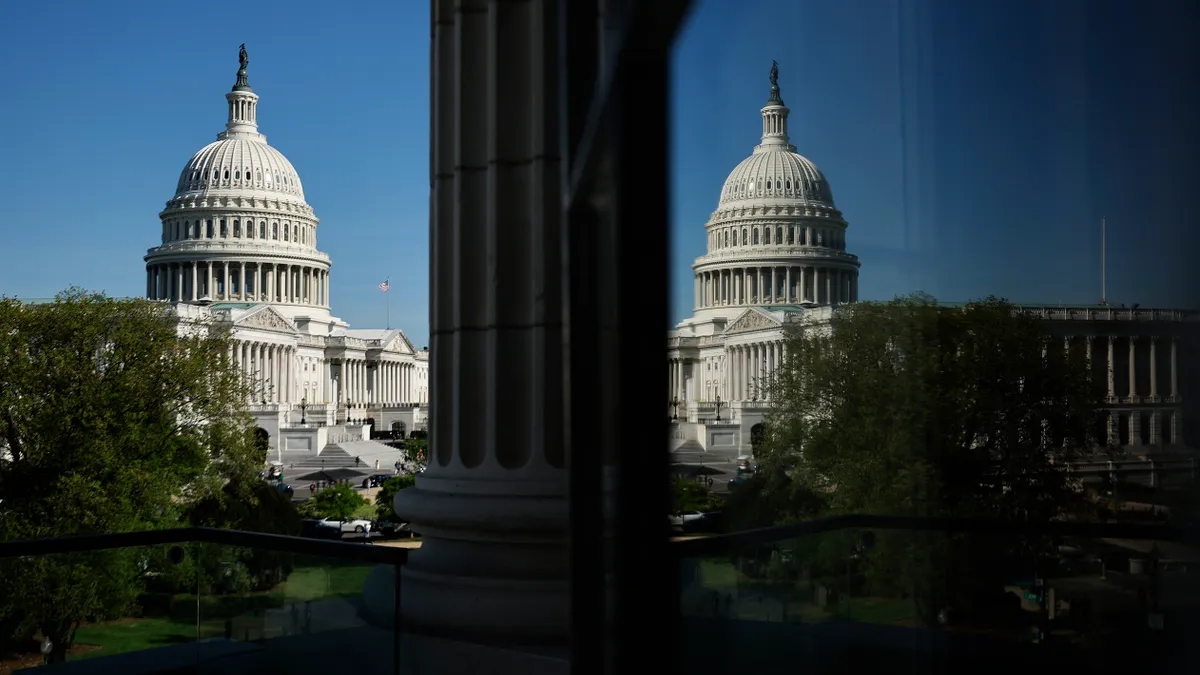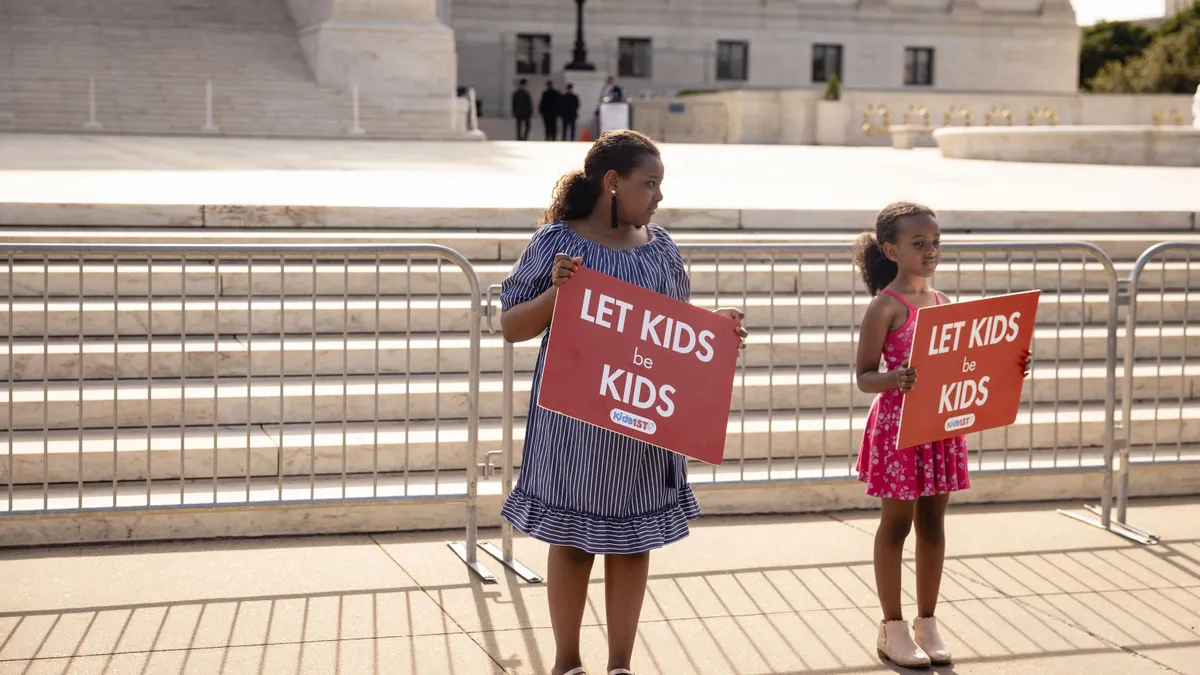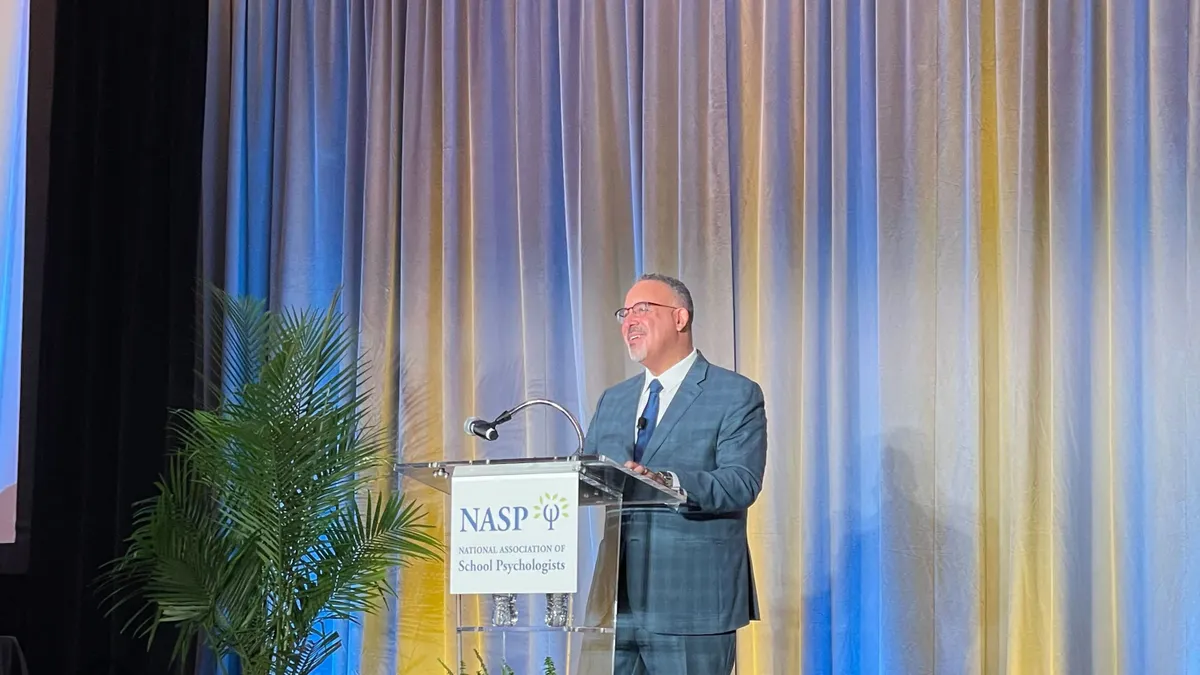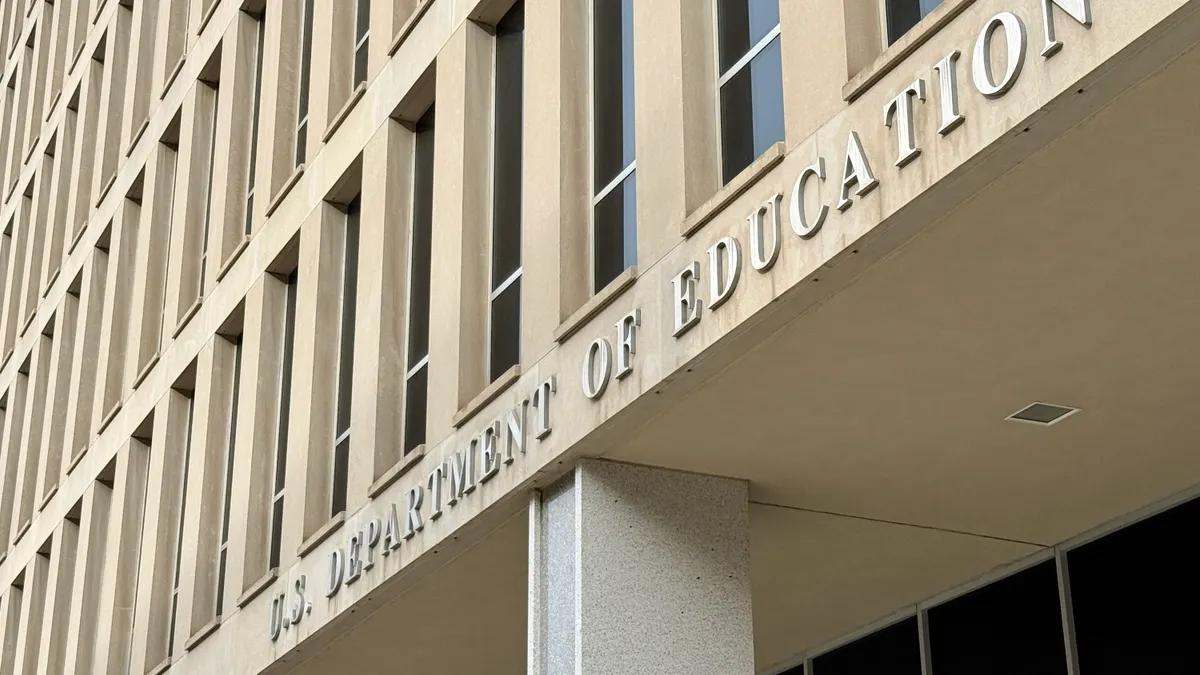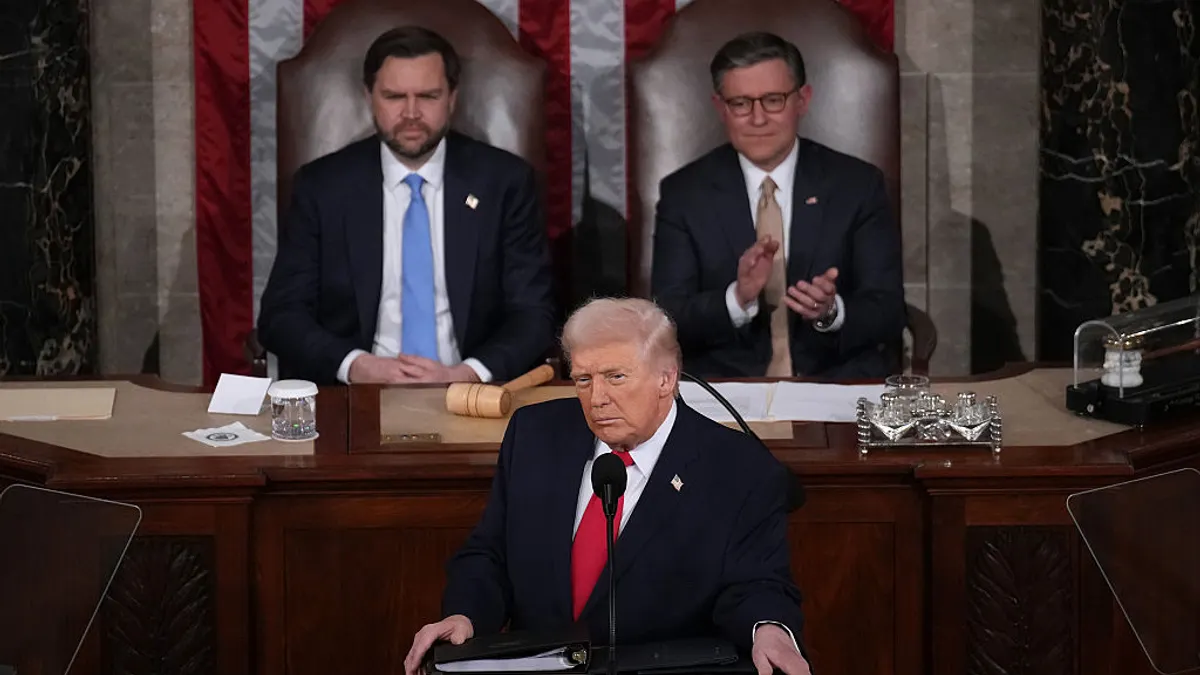The Trump administration on Thursday scaled back access to a number of federal programs based on immigration status — including education-related programs such as Head Start, tuition for dual enrollment, adult education, and career and technical education training programs.
The multi-agency effort impacting a handful of programs was put into motion by President Donald Trump's executive order “Ending Taxpayer Subsidization of Open Borders,” issued in February.
That directive called on agencies to "defend against the waste of hard-earned taxpayer resources, and protect benefits for American citizens in need," including by preventing "taxpayer resources from acting as a magnet and fueling illegal immigration to the United States" and ensuring that "no taxpayer-funded benefits go to unqualified aliens."
It ordered agencies to identify all federally funded programs they oversee that allow "illegal aliens to obtain any cash or non-cash public benefit."
As a result, agencies including the U.S. Department of Education and U.S. Department of Health and Human Services, both of which distribute federal dollars to public programs impacting education, released policy changes to align with the order on Thursday.
HHS, for example, said in a Thursday press release the Head Start program "is reserved for American citizens from now on," rather than being open to any low-income or age-eligible child regardless of immigration status. HHS clarified to K-12 Dive that children of green- card holders will still be eligible for the program, and that Head Start agencies will determine eligibility based on the immigration status of the child.
The Head Start program was created to level the playing field for students from low-income families by allowing them access to early childhood education before entering the K-12 school system.
The previous policy allowing access to the program regardless of immigration status "diverted hardworking Americans' tax dollars to incentivize illegal immigration," according to a Thursday statement by Health and Human Services Secretary Robert F. Kennedy, Jr.
The change alarmed the National Head Start Association, which represents Head Start workers, children and families nationwide. The new policy means that Head Start programs will be required to check the citizenship or immigration status of children prior to their enrollment, which it has never been required to do in the past 60 years under the Head Start Act, it said.
"This decision undermines the fundamental commitment that the country has made to children and disregards decades of evidence that Head Start is essential to our collective future," said NHSA in a Thursday statement. "Attempts to impose such a requirement threaten to create fear and confusion among all families who are focused on raising healthy children, ready to succeed in school and life."
The administration's implementation of the executive order also stands to impact dual enrollment, as well as career and technical education programs serving some teens and adults.
Tuition for dual enrollment and similar early college programs for high schoolers, for example, could now require a citizenship and immigration status check, "because those programs provide individualized payments or assistance beyond that of a basic public education."
A notice set to be published in the Federal Register on Friday by the Education Department says "non-qualified alien children" are now ineligible for "postsecondary education benefits and certain other education benefits."
The Education Department intends to send letters “discussing eligibility verification” to grantees receiving federal funds that administer these programs, it said in a press release Thursday.
“Postsecondary education programs funded by the federal government should benefit American citizens, not illegal aliens,” said U.S. Secretary of Education Linda McMahon in a Thursday statement. “Under President Trump's leadership, hardworking American taxpayers will no longer foot the bill for illegal aliens to participate in our career, technical, or adult education programs or activities."
The department said that while its new interpretation does not have an implementation date, it generally won't take enforcement action against any institution for violating the administration's new eligibility requirements prior to Aug. 9, 2025.
The changes to HHS and Education Department programs are part of a slew of changes announced on Thursday across the administration, including at other agencies that also fund school programs, such as the U.S. Departments of Agriculture and Labor. It is unclear if programs under those agencies, such as the National School Lunch Program and teacher training grants could be impacted.
As noted by HHS in its announcement, programs listed as restricted are not "exhaustive" and could be updated with additional guidance.
The changes impacting which services schools can provide their students come after an influx of migrant students in the past few years.
In 2021, there were approximately 11 million public school students from immigrant-headed households — both legal and those lacking permanent legal status — according to the Center for Immigration Studies. That's approximately 1 in 4 students in public schools.







